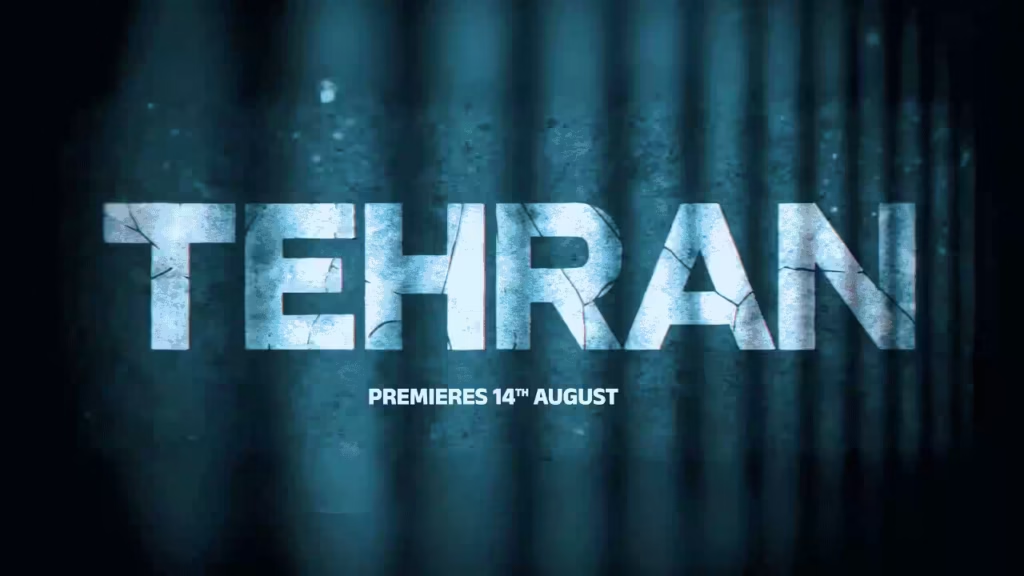
Arun Gopalan directed the Indian Hindi-language action thriller Tehran, which came out in 2025. John Abraham, Manushi Chhillar, and Neeru Bajwa star in it. The movie came out on ZEE5 on August 14, 2025, and it lasts for 1 hour and 55 minutes.
The story is based on the bombing of Israeli diplomats in Delhi in 2012 and looks at the effects of spying on people and countries around the world. John Abraham plays ACP Rajeev Kumar, an intelligence officer whose mission in Tehran becomes dangerous after the bombing in Delhi. He is targeted by Iran and left alone by India while trying to tell the truth.
Main cast:
- John Abraham (ACP Rajeev Kumar)
- Manushi Chhillar (SI Divya Rana)
- Neeru Bajwa (Sheilaja)
- Madhurima Tuli (Vandana)
- Hadi Khanjanpour (Afshar Hosseini)
Theme of Tehran:
- The movie is about real-life spying, and it focuses on the psychological tension and moral ambiguity that come with it, not just the action.
- Critics like Abraham’s subtle performance and the movie’s in-depth look at spying in the middle of the violent political conflict between Israel and Iran.
- The movie is known for its raw action scenes and emotional depth, which take place in Tehran, Delhi, Mumbai, and Glasgow.
- Language: Hindi; Subtitles: Hindi and English.
The movie mixes real events with made-up ones, staying close to what really happened but using dramatic license to make it more interesting.
What real 2012 events inspired Tehran’s plot
The story of Tehran is based on the 2012 bombing of Israeli diplomats in New Delhi, India. A magnetic explosive device was put on an Israeli diplomatic car near Israel’s embassy on February 13, 2012. The attack hurt the wife of an Israeli diplomat, her driver, and two people in a nearby car very badly. A similar but unsuccessful attempt happened in Tbilisi, Georgia, on the same day.
Benjamin Netanyahu, the Prime Minister of Israel, quickly blamed Iran and its ally Hezbollah for the attacks. He said that they were targeting Israeli diplomats around the world in retaliation for covert operations and the killing of Iranian scientists. Indian officials called it a terrorist act and started a long investigation, but they didn’t say who was to blame at the time. Later investigations and reports pointed to Iranian involvement, specifically linking the attack to people connected to Iran’s Revolutionary Guard.
As a result, the 2012 Delhi bombing became a major event in international spying and diplomatic tensions, providing the real-life setting for the movie Tehran.
How accurate are Tehran’s portrayals of Iran and diplomacy
Most people agree that Tehran’s portrayal of Iran and diplomacy is more nuanced, sensitive, and realistic than most Bollywood thrillers:
Sensitive and Balanced Approach:
John Abraham, the main actor, has said that the filmmakers worked hard to show the diplomatic reality of both Iran and India in a sensitive way, avoiding over-the-top nationalism and stereotypes about Iran or Israel. People who have seen the movie say it’s good because it doesn’t make the Iran-Israel conflict seem more dramatic than it is. Instead, it looks at real diplomatic tightropes and the problems that people who work in this area face.
Authenticity in Depiction:
Critics praise the film for its raw and real portrayal of Tehran’s atmosphere, which includes the use of Farsi (with subtitles), realistic action, and subdued performances. Most people think that the portrayal of Iran as a complicated, dangerous, but culturally rich place is accurate, and the way the political climate is shown through the visual landscape and the tension is very effective.
Diplomatic Complexity:
The movie does a good job of showing how India has to balance its relationships with both Iran and Israel. It shows how diplomatic ambiguity and changing alliances can leave operatives alone. Instead of giving a clear-cut view, it goes into the lonely, morally gray world of geopolitical intrigue, where the main character is left alone by his own government for bigger strategic reasons.
Critics say that the movie, while ambitious, sometimes makes complicated issues seem simple and doesn’t fully show how deep or complicated the Middle East crisis is. This could make it seem like collateral damage and personal vendetta are less important in international relations.
In general, though, Tehran is praised for how carefully it handles Iran’s image and international diplomacy, mixing drama with real political complexity and avoiding caricature or blatant propaganda.
Stay tuned to AbsoluteCinema.in for more updates, reviews, and detailed box office reports.